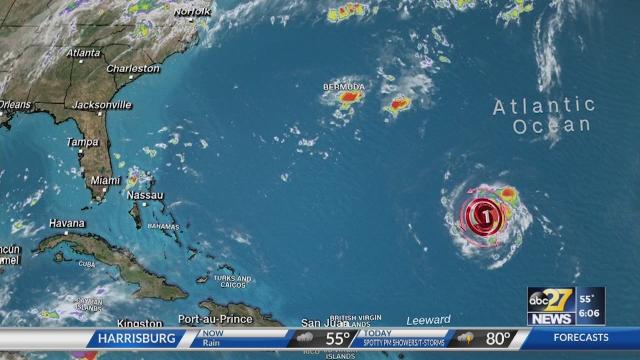Florence made landfall as a Category 1 hurricane in North Carolina but was revised to a tropical storm by Friday afternoon as it entered South Carolina in the night. Its onslaught has trapped people in their homes.
The administration had warned residents in advance to evacuate and those who ignored the warnings are now at the receiving end. The storm threatens to leave behind a trail of destruction and suffering. Some towns in the East Coast could experience flash floods due to strong winds accompanied by heavy rains.
CNN reports that at least five deaths have occurred and the dead include a mother and her infant of North Carolina.
They died when a tree fell on their home on Friday.
Two more deaths were of elderly men, one of whom was killed when connecting an electrical generator. The other lost his life in a wind-related death. The fifth was a woman who died from cardiac arrest in the town of Hampstead where some roads were blocked by uprooted trees. That led to delays in providing medical attention.
All the live Hurricane Florence webcams in one place: https://t.co/I4S9AcEUSN pic.twitter.com/9IVoAzW4Ig
— CBS News (@CBSNews) September 15, 2018
The situation is grim
Hurricanes are not new to the United States. It had faced three of them last year and one was in Florida while another was in Puerto Rico. In the case of Florence, rescue teams jumped into action to save many people from the rising waters.
Thousands of homes and businesses did not have power. South Carolina Emergency Management has confirmed non-availability of power to nearly 130,000 customers.
The National Hurricane Center director Ken Graham has expressed fears of flash floods. In his words, the heavy rainfall will create a situation that "will produce catastrophic flash flooding and prolonged significant river flooding." A nuclear power plant in Brunswick, North Carolina, has suspended its operations as a precautionary measure. This is usually done when strong hurricane-force winds are expected to strike.
North Carolina Governor says this is a 1000-year event
According to the BBC, evacuation warnings had been issued in advance for nearly 1.7 million people in the region.
However, Hurricane Florence has been downgraded to a tropical storm and is bringing heavy rains to the East Coast. The strong winds have uprooted trees and damaged homes.
North Carolina Governor Roy Cooper has described the severity of the downfalls as a "1,000-year event". Meteorologist Ryan Maue has predicted that the amount of rainwater from Florence could reach mindboggling figures. Large sections of the population are without power already in North Carolina, and restoration of power would take time. More than 20,000 residents are already accommodated in emergency shelters.
![Hurricane Florence continues to pound the Carolina coast. [Image Credit – ABC News, YouTube video] Hurricane Florence continues to pound the Carolina coast. [Image Credit – ABC News, YouTube video]](https://staticr1.blastingcdncf.com/media/photogallery/2018/9/15/660x290/b_502x220x82/hurricane-florence-continues-to-pound-the-carolina-coast-image-courtesy-abc-news-youtube-video_2097251.jpg)


